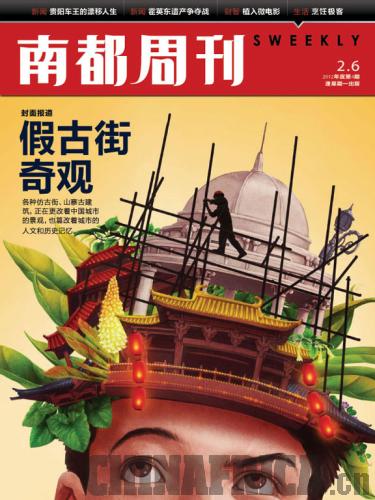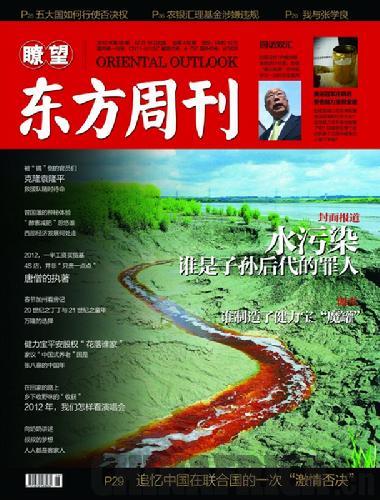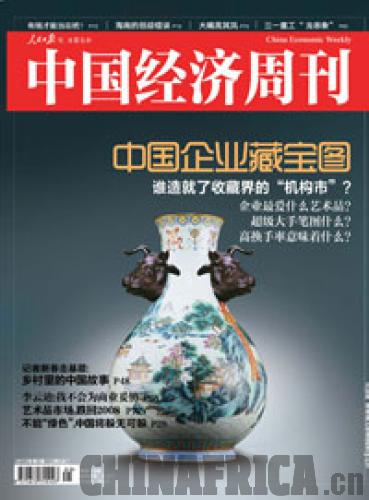| 
Fake Towns
Southern Metropolis Weekly
February 6, 2012
As a country with a history of more than 5,000 years, China has many historical ancient cities that attract visitors from home and abroad. With the passing of time, some historical scenic spots and architectures are falling into disrepair. Some cities like Wuhan rebuild their historic buildings, however, in sites where the ancient relics were not originally located.
The changes are said to be made to facilitate tourists. Zhang Song, a professor from School of Architecture and Urban Planning with Shanghai-based Tongji University, believes that the rebuilding is based on insufficient historical records, and some even contradict historical facts. Thus it is distorting the image of ancient cities.
According to him, the random rebuilding may leave people with the misconception that it is ok to build fake historical scenes and cultural images. If so, history is likely to be distorted. In addition, overemphasizing on reshaping ancient cities will restrict the creativity in architecture.

Combating Water Pollution
Oriental Outlook
February 9, 2012
Water is vital to the survival of human beings. While fostering economic development, industrialization brought pollution to water resources at the same time, forcing people to seek ways to solve the pollution.
In this issue, Oriental Outlook looks at the reasons for water pollution and ways to alleviate the problem by investigating the Dongjiang River, the eastern tributary of the Pearl River in south China's Guangdong Province.
Motivated by high profits, locals take the risk of being punished by the law and mine rare earth illegally, thus polluting the water in the process. Other pollution comes from areas like poultry farming. Guangdong has launched the strictest measures to manage water resources and standardize the operations of mining. Experts say this can provide lessons for other provinces. Meanwhile, joint efforts from different regions along the river are needed to combat water pollution.
Overcharging Tourists
Beijing Times
February 9, 2012
A seafood restaurant in Sanya, in south China's tropical resort Hainan Province, received complaints about overcharging tourists during the Spring Festival holiday, peak travel season for the place. Although the incident ended up with the restaurant being fined and its business license revoked, it tarnished the reputation of the city as a hot tourism spot.
Other popular tourist cities in China should learn from this. When improving infrastructure, local authorities should strengthen their service awareness and business supervision. While on the surface it appeared that the Sanya incident was due to a greedy businessman, the root cause lay in local authorities' poor supervision of the tourism market.

Collection by Enterprises
China Economic Weekly
February 6, 2012
Traditionally, art works attract the attention of enthusiastic individual amateur collectors in China. But in recent years, with the price of art soaring, enterprises are now buying art by top artists. The magazine examines the reasons for this move and the future of enterprises collecting art works.
Unlike individual amateurs collecting art works for personal hobby, enterprises do so for other reasons such as investment and improving corporate cultures. However, China's current art market lacks honesty with fake works being common. Therefore, insiders believe enterprises won't invest in this market without prudent consideration. In the long run, when the practice of corporate art collection becomes more mature, it will promote the advancement of the whole art industry.
Tolerance Not Resistance
Qilu Evening News
February 14, 2012
A traditional festival for Westerners, Valentine's Day has now become a great occasion in China, when the price of roses soars and theaters, hotels and shopping malls swarm with people in love. A festival supposed to be an opportunity to express the feelings of love has become a tool to promote merchandise in the name of love, leading to mounting concerns that Western culture is drowning out Chinese culture.
With the improvement in Chinese earning power, people are now seeking spiritual fulfillment as they enjoy a life where wellbeing begins to take priority. A more liberal social environment provides people with more lifestyle choices. This has all paved the way for Valentine's Day and other Western festivals to be popular in China. In a world becoming more cultural diverse, the right attitude to Western culture should be tolerance not resistance. |